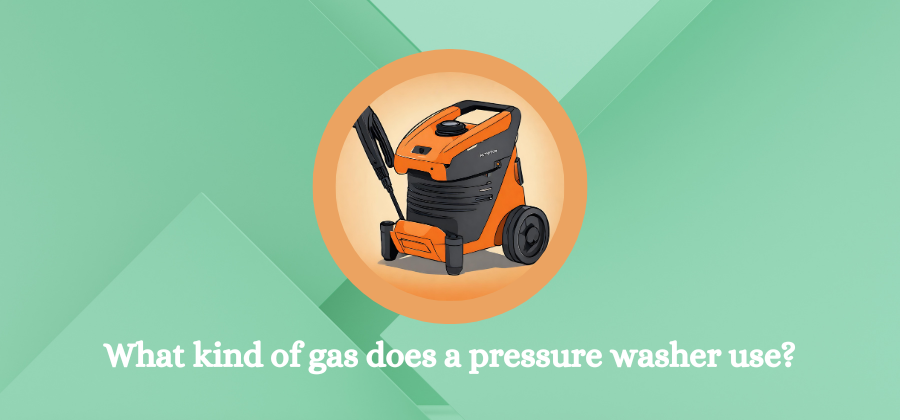
Are you curious about how your pressure washer works, What kind of gas a pressure Washer use, and what keeps it running strong? Imagine a magic wand that sprays high-pressure water to blast away dirt and grime from any surface. That’s exactly what it does! It’s a fantastic cleaning tool that uses powerful water jets to tackle tough cleaning tasks.
But did you know that it needs the right “fuel” to work its magic? Just like a car needs the right gasoline to run smoothly, your washer relies on special gas to perform its cleaning wonders. Today, we’ll explore the secrets behind this special gas, learn about the different types, and discover how to take care of it.
They are powerful cleaning machines used for various applications, from removing stubborn grime on outdoor surfaces to preparing surfaces for paint. While there are different types available, this article aims to provide an easy-to-understand explanation of the types of gas used in it.
Understanding Pressure Washers:
These are mechanical devices that use high-pressure water to clean various surfaces. They consist of a motor or engine that drives a pump, which pressurizes the water. This high-pressure stream of water helps in dislodging dirt, grime, and contaminants from different surfaces.
Although they are available in both gas and electric models, this article focuses specifically on the gas-powered variants and the types of gas they use.
Types of Gas Used in Pressure Washers
There are primarily two types of gas used in its gasoline and diesel. Both types of fuel have their own characteristics and benefits.
Gasoline
Gasoline-powered washers are more common and widely used among homeowners and commercial users due to their convenience and availability. Here are some details:
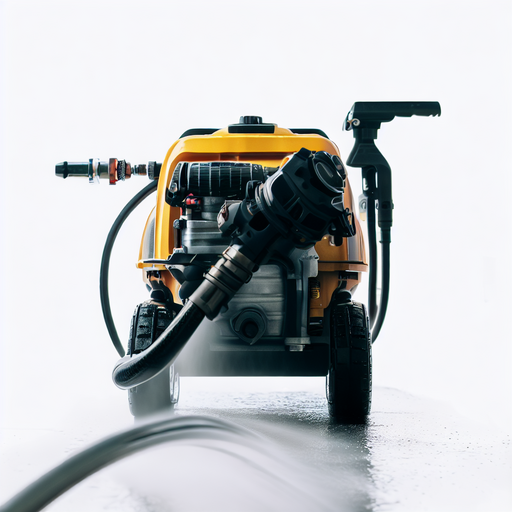
Fuel Source
They use regular unleaded gasoline. The engines are typically four-stroke internal combustion engines.
Portability
They are highly portable, as they don’t require a direct electrical power source. They can be used in remote locations and are suitable for outdoor applications.
Power Output
It tends to provide higher pressure and flow rates compared to electric washers. They are capable of handling heavy-duty cleaning tasks.
Versatility
They are versatile as they can be used in various applications, including cleaning driveways, decks, outdoor furniture, and even vehicles.
Maintenance
Regular maintenance, such as oil changes, air filter checks, and spark plug replacements, is necessary for gasoline-powered washers. Proper storage and usage are essential to ensure optimal performance.
Diesel
Diesel-powered Pressure washers are less common than gasoline models but are used in specific situations where their distinct advantages are beneficial. Here are some details about diesel-powered washers:
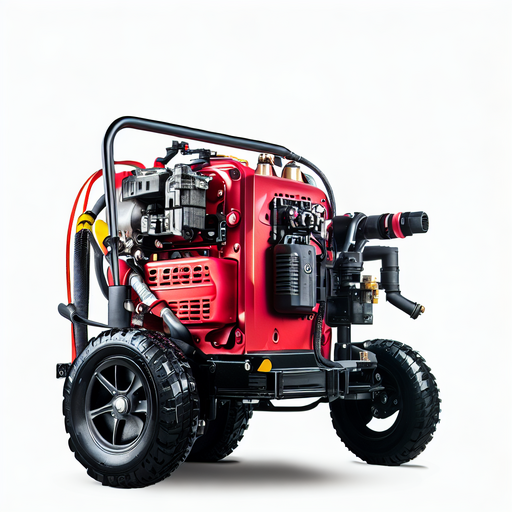
Fuel Source
It runs on diesel fuel, which is less volatile and has a higher energy density compared to gasoline.
Efficiency
Diesel engines are known for their high fuel efficiency. They consume less fuel while generating more power, making them suitable for heavy-duty and prolonged use.
Durability
They are designed for extended use and are built to withstand harsh conditions. They are often used in industrial settings or commercial applications where strength and durability are essential.
Longevity
Diesel engines generally have a longer lifespan than gasoline engines, primarily due to their robust construction and lower operating temperatures.
Maintenance
Routine maintenance is required for diesel, including fuel filter changes, oil changes, and periodic inspection of the injector system. Regular maintenance helps ensure optimum performance and durability.
It’s important to note that when operating, safety precautions such as proper ventilation, fuel storage, and being mindful of carbon monoxide emissions are crucial. Additionally, following the manufacturer’s guidelines for fuel type, proper usage, and maintenance will maximize the lifespan and performance.
The Importance of Using the Right Gas
Using the right type of fuel is crucial for the optimal performance and longevity of the machine. Here are some reasons why it’s important to use the right gas in it:
Engine Performance
They are powered by small engines that require specific types of fuel to operate efficiently. Using the wrong type of fuel can cause the engine to run poorly, which can lead to decreased performance and even damage to the machine.
Engine Lifespan
Using the wrong fuel can also cause long-term damage to the engine, reducing its lifespan and requiring costly repairs or replacement.
Safety
Using the wrong type of fuel can be dangerous, as it can cause fires or explosions. For example, using gasoline with a higher octane rating than recommended can cause the engine to overheat, leading to a fire or explosion.
Warranty
Using the wrong type of fuel can void the warranty on your pressure washer, leaving you responsible for costly repairs or replacements.
Environmental Impact
Using the wrong type of fuel can also have negative environmental impacts, as it can release harmful emissions into the air.
Do Pressure Washers Take Mixed Gas?
If your washer is powered by a gasoline engine, it requires regular gasoline, just like a car or a lawnmower. You can buy gasoline at most gas stations, and it typically comes in different grades, such as regular, mid-grade, and premium. Most washers are designed to run on regular gasoline, which is the most common type.
Mixed gas, on the other hand, is a combination of gasoline and oil that is used in two-stroke engines, such as those found in some lawnmowers, chainsaws, and other small power tools. Two-stroke engines require a mixture of gasoline and oil to lubricate the engine and keep it running smoothly.
However, they typically have four-stroke engines, which means they do not require mixed gas. Four-stroke engines have a separate oil reservoir that lubricates the engine, so you only need to add gasoline to the fuel tank.
What Happens if You Put Mixed Gas?
If you put mixed gas that is designed to run on regular gasoline, it can damage the engine and other parts of the machine. The mixed gas is designed for two-stroke engines, which require a mixture of gasoline and oil to lubricate the engine and keep it running smoothly.
If you put mixed gas with a four-stroke engine, the oil in the mixture can cause the spark plug to foul, which can prevent the engine from starting or cause it to run poorly. The oil can also clog the carburetor, which can prevent the engine from getting enough fuel to run properly.
The oil in the mixed gas can cause carbon buildup in the engine, which can cause the engine to overheat and seize up. This can cause serious damage to the engine and other parts of the machine, which can be expensive to repair or replace.
It is important to use the correct type of fuel. If you put mixed gas that is designed to run on regular gasoline, it can damage the engine and other parts of the machine, which can be expensive to repair or replace.
Difference Between Regular, Mid-Grade, and Premium Gasoline:
The main difference between regular, mid-grade, and premium gasoline is the octane rating. Octane is a measure of a fuel’s ability to resist “knocking” or “pinging” during combustion, which can cause damage to the engine and reduce performance.
Regular gasoline typically has an octane rating of 87, while mid-grade gasoline has an octane rating of 89, and premium gasoline has an octane rating of 91 or higher. The higher the octane rating, the more resistant the fuel is to knocking or pinging.
In general, most vehicles are designed to run on regular gasoline, which has an octane rating of 87. However, some high-performance engines require higher octane fuel to prevent knocking and ensure optimal performance.
Using a higher octane fuel than recommended by the manufacturer is not necessary and will not provide any additional benefits. It will simply be more expensive, as higher octane fuel typically costs more per gallon.
How to Avoid Common Fuel-Related Problems?
Fuel-related problems can cause significant damage and reduce its performance. Here are some tips to help you avoid common fuel-related problems
Use Fresh Fuel
Gasoline can go bad over time, which can cause damage to the engine and reduce performance. Be sure to use fresh gasoline that has been stored properly.
Use the Right Octane Rating
Using fuel with too low or too high of an octane rating can cause engine damage. Be sure to use the octane rating recommended in the owner’s manual.
Avoid Ethanol
Some types of gasoline contain ethanol, which can damage small engines if used in high concentrations. Check the owner’s manual to see if it is compatible with gasoline containing ethanol. If not, choose a gasoline that does not contain ethanol.
Use Fuel Stabilizer
If you plan to store your washer for an extended period of time, it’s important to use fuel stabilizer to prevent the gas from going bad and causing damage to the engine. Follow the instructions on the fuel stabilizer carefully.
Clean the Fuel System
Over time, dirt and debris can build up in the fuel system, which can cause problems with the engine. Be sure to clean the fuel system regularly to prevent these problems from occurring.
Check the Fuel Filter
The fuel filter can become clogged with dirt and debris, which can cause problems with the engine. Be sure to check and clean the fuel filter regularly to prevent these problems from occurring.
By following these tips, you can avoid common fuel-related problems and ensure optimal performance, safety, and longevity of the machine. Be sure to consult the owner’s manual for specific fuel recommendations and follow them carefully.
Important Considerations:
Check the owner’s manual
The owner’s manual will provide specific fuel recommendations for your washer, including the type of gas and octane rating.
Octane Rating
The octane rating of the gas you use is important, as using fuel with too low or too high of an octane rating can cause engine damage.
Ethanol Content
Some gasoline contains ethanol, which can damage small engines if used in high concentrations. Check the owner’s manual to see if it is compatible with gasoline containing ethanol.
Storage
If you plan to store them for an extended period of time, it’s important to use a fuel stabilizer to prevent the gas from going bad and causing damage to the engine.
Quality
Choose high-quality gasoline from a reputable supplier to ensure optimal performance and longevity.
By keeping these considerations in mind, you can choose the right gas for your pressure washer and ensure optimal performance, safety, and longevity of the machine.
What Happens if You Use the Wrong Type of Gas?
It can cause significant damage to the engine and other components. The type of gas you use affects the engine’s performance, fuel efficiency, and longevity. If you use gas with too low of an octane rating, the engine may experience knocking, which can cause damage over time. This is because the fuel is not burning properly, and the engine is not running as efficiently as it should be.
If you use gas with too high of an octane rating, it may not burn completely, which can cause carbon buildup and other problems. This can lead to clogged fuel injectors and other issues that can affect the performance of your washer. Additionally, using gasoline with ethanol can cause damage to the engine if the concentration is too high. Ethanol can absorb water, which can cause corrosion and other problems in the fuel system.
It’s important to always use the type of gas recommended in the owner’s manual to prevent damage and ensure optimal performance. The owner’s manual will specify the recommended octane rating and whether the gasoline can contain ethanol. If you’re not sure what type of gas to use, consult the owner’s manual or contact the manufacturer for guidance.
Maintaining Your Pressure Washer’s Engine with the Right Fuel
Using the correct fuel and following proper storage procedures will ensure that your washer runs smoothly and efficiently:
Read the Manual
Before using, carefully read the manufacturer’s manual. The manual will provide essential information about the type of fuel recommended for your specific washer model.
Use the Right Fuel Type
Most of them run on gasoline, but some models might use diesel or electric power. Always use the fuel type specified in the manual. Using the wrong fuel can damage the engine and void the warranty.
Choose the Right Fuel Grade
For gasoline-powered pressure washers, use unleaded gasoline with an octane rating of at least 87. Higher octane ratings won’t necessarily improve performance, but using lower grades might cause knocking and damage the engine over time.
Avoid Ethanol-blended Fuel
Ethanol-blended fuels, such as E10 (10% ethanol), are common in many areas. However, ethanol can be corrosive and cause damage to the engine and fuel system components. If possible, opt for ethanol-free gasoline.
Use Fresh Fuel
Gasoline can degrade over time, especially if it contains ethanol. Only use fresh fuel that is less than 30 days old to prevent starting and running issues.
Add Fuel Stabilizer
If you anticipate not using the pressure washer for an extended period, consider adding a fuel stabilizer to the gasoline. This will help prevent fuel degradation and keep the engine in good condition during storage.
Fuel Mixing
If you have a two-stroke engine (less common in washers), make sure to mix the fuel and oil according to the manufacturer’s guidelines. Using the wrong fuel-to-oil ratio can lead to engine damage.
Check for Contaminants
Before fueling up, inspect the fuel can for any dirt, debris, or water. Contaminated fuel can harm the engine and clog the fuel system.
Fueling Safely
When adding fuel, ensure the washer is turned off and cooled down. Avoid overfilling the tank to prevent spills and fuel leakage.
Store Fuel Properly
If you plan to store it for an extended period, drain the fuel tank or use a fuel stabilizer to prevent fuel-related issues during storage.
Final Words
As we conclude our exploration into the world of pressure washer gas, we’ve unveiled the vital role this fuel plays in unleashing the full potential of these mighty cleaning machines. Just like a magician’s wand, the right gas breathes life into the washer, empowering it to transform dirty surfaces into gleaming masterpieces with its high-pressure water jets.
We’ve delved into the different types of gas, from the ever-reliable gasoline that fuels most washers to the robust diesel that thrives in demanding industrial settings. Armed with this knowledge, you now possess the key to choosing the perfect fuel for your specific cleaning needs.
Remember, the secret to maintaining its brilliance lies in proper care and adherence to the manufacturer’s guidelines. Keep its engine well-tended with the right fuel, regular maintenance, and smart storage practices, and it will remain your loyal cleaning companion for years to come.
So, next time you power up and witness it conquering dirt and grime effortlessly, you’ll know that it’s the special gas that keeps the magic alive. Now, embrace the power and unleash their cleaning fury with confidence!
Frequently Asked Questions
Can I use my pressure washer on painted surfaces?
When using on painted surfaces, it’s crucial to use the correct pressure setting and maintain a safe distance to avoid chipping or peeling the paint. If in doubt, test it on a small inconspicuous area first.
Can I use higher octane gasoline in my pressure washer for better performance?
Using higher octane gasoline than recommended by the manufacturer will not provide any additional benefits or improve the performance. Stick to the octane rating specified in the owner’s manual to ensure proper engine operation and prevent knocking or pinging
Can I use gasoline containing ethanol in it?
While some washers are compatible with gasoline containing ethanol, it is generally recommended to avoid ethanol-blended fuel whenever possible. Ethanol can be corrosive and cause damage to small engines and fuel system components over time.
How often should I perform maintenance on my gas-powered pressure washer?
Regular maintenance is essential for optimal performance and longevity. Follow the manufacturer’s guidelines in the owner’s manual for specific maintenance intervals. Generally, routine maintenance tasks, such as oil changes, air filter checks, and spark plug replacements, should be performed regularly.
Can I mix oil with gasoline for my gas-powered pressure washer?
Gas-powered use a separate oil reservoir for engine lubrication, so you should not mix oil with gasoline. Only two-stroke engines, commonly found in some small power tools, require a mixture of gasoline and oil for proper lubrication
Are gas-powered pressure washers safe to use indoors?
It Should never be used indoors due to the risk of carbon monoxide poisoning. These machines produce exhaust fumes, and operating them in an enclosed space can lead to dangerous levels of carbon monoxide buildup. Always use in well-ventilated outdoor areas.
Reference
https://gambrick.com/what-gas-to-use-for-a-pressure-washer/
https://krostrade.com/blog/what-kind-of-gas-does-a-pressure-washer-use/
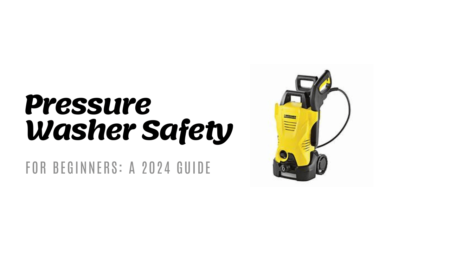
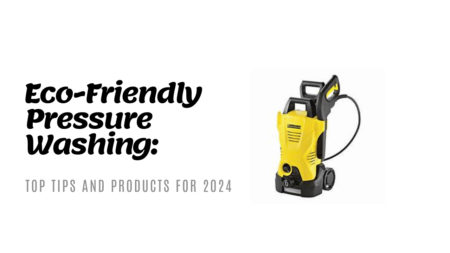
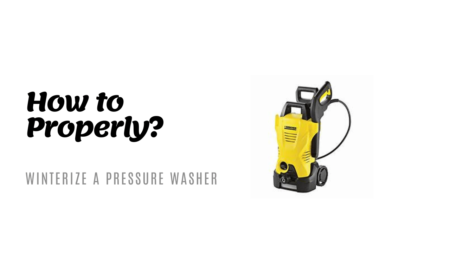
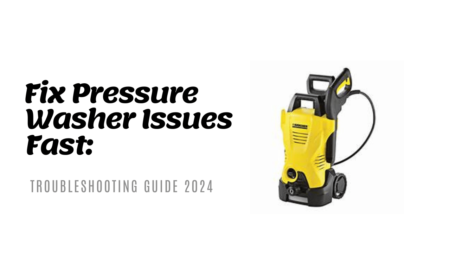
![Pressure Washing Regulations: What You Need to Know [Updated 2024]](https://pressurwasher.com/wp-content/uploads/2024/05/Minimalist-Tutorial-Event-YouTube-Thumbnail-2024-05-31T224409.854-450x253.png)
![Ultimate Guide to Pressure Washer Maintenance [2024 Edition]](https://pressurwasher.com/wp-content/uploads/2024/05/Minimalist-Tutorial-Event-YouTube-Thumbnail-2024-05-30T230638.695-450x253.png)